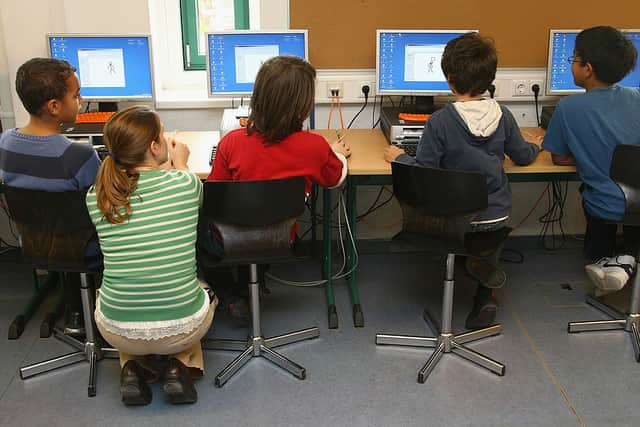Back to school: headteachers warned about cyber attack threat as new school year begins
This article contains affiliate links. We may earn a small commission on items purchased through this article, but that does not affect our editorial judgement.
and live on Freeview channel 276
Schools have been told they must prepare for the threat of cyber attacks as the new academic year begins.
Researchers from cybersecurity company Proofpoint have urged headteachers to ensure they have better defences against cyber attacks at their schools, after publishing a survey which revealed that 96% of the top 50 state secondary schools in the UK are “lagging behind” on online safety measures.
Advertisement
Hide AdAdvertisement
Hide AdWhile there is no indication of an increased threat against schools at the moment, experts have warned that the start of a new term can present opportunities for criminals - with Don Smith, vice president of the counter-threat unit at Secureworks, warning that actions like mass-creating new accounts for new pupils and staff could create vulnerabilities.
Speaking to Sky News, Mr Smith also warned of the possibility of students and teachers bringing devices into school which could pose a security risk. “If you’ve allowed [them] to take their devices home over the summer, these devices may have picked up infections and malware that can come back into the school and create a problem.”
The warnings from Proofpoint and Secureworks come just days after a school in north London announced it would be starting its new term six days late after being targeted in a cyber-attack. In a letter to parents seen by the Ham&High, Highgate Wood School’s headteacher Patrick Cozier confirmed that an online attack had meant staff could not access the school’s IT systems.


He added that the school is “extremely confident our data has not been breached”, the start of the new term had been delayed from 5 September to 11 September, while they worked to get “functionality back up and running as swiftly and securely as possible.”
Advertisement
Hide AdAdvertisement
Hide AdInterestingly, on the same day, Debenham High School in Suffolk suffered a similar attack - with parents again being told in a letter that all of the institution’s computer facilities were offline as a result of the hacking.
Headteacher Simon Martin said “there was no evidence that any data had been compromised” as he insisted the support team were working as quickly as possible to restore its systems. He gave no indication that the new term’s start date would be delayed.
Cyber attacks are of course not the only issue schools are dealing with this year. On Friday (1 September), it was revealed that more than 100 schools across England could delay their term start dates over fears their buildings were constructed with concrete that is “prone to collapse”.
Ministers told headteachers across the country that any buildings made with reinforced autoclaved aerated concrete (RAAC) must be “taken out of use immediately”, and that “mitigations” - such as “propping, failsafing, or strengthening” - must be put in place as soon as possible. RAAC is a type of concrete which was used as a common building material from the 50s until the early 90s, but only has a life expectancy of around three decades.
Advertisement
Hide AdAdvertisement
Hide AdThe Government has faced criticism and questions over why it only made just before the start of the new school year, when a report in June by the National Audit Office (NAO) said that the risk of injury or death from a school building collapse in England was “very likely” - as it warned of the “critical” danger to pupils and staff.
The schools minister Nick Gibbs claimed last week that the issue had only fully “emerged over the summer”, but NationalWorld reported on Friday that the Department for Education’s own risk assessment of the likelihood of buildings collapsing had been upgraded from ““crisis - likely” to “critical - very likely” back in September 2021.
Comment Guidelines
National World encourages reader discussion on our stories. User feedback, insights and back-and-forth exchanges add a rich layer of context to reporting. Please review our Community Guidelines before commenting.
